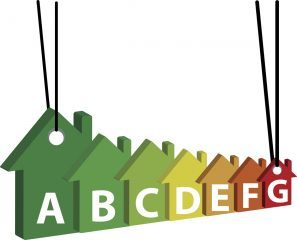Landlords need to prepare for new MEES regulations in April
As of 1st April 2020, the Minimum Energy Efficiency Standards (MEES) regulations for new and existing tenancies in the private rental sector will change.
Going forward, they will be required to have a minimum energy performance rating of ‘E’ on the property’s Energy Performance Certificate (EPC).
This change has been on the way since 1st April 2018, when it became unlawful for a landlord to let a “non-compliant” or “sub-standard” building that has an EPC rating of F or G. The best possible rating is A.
As such, law firm Fladgate LLP has looked into what this will mean for landlords.
Exemptions to new EPC rules
There are a few ways in which a landlord may be exempt from this change in MEES regulations. Fladgate points out the following situations:
1. Exemption due to devaluation – a temporary exemption of 5 years will apply if a landlord can demonstrate that the installation of energy efficiency measures would reduce the market value of the property by more than 5%;
2. Exemption for new landlords – if a person becomes a landlord recently or suddenly in specified circumstances under the MEES Regulations, a temporary exemption of six months will apply; and/or
3. Third-party consent – if a landlord cannot obtain necessary third-party consents to improve the EPC rating of the property (including but not limited to lender consent, superior landlord consent and/or tenant consent), then a landlord may let a “sub-standard” property.
If you are a landlord looking to rely on an exemption then you must register on the online PRS Exemptions Register, says Fladgate.
What if I don’t comply with the MEES Regulations?
If a landlord fails to comply with the new MEES regulations, they risk a financial penalty. This can vary depending upon the length of the breach.
Fladgate summarises:
- A landlord renting out a “non-compliant” property (less than three months in breach) may be fined up to either £5,000 or 10% of a rateable value up to a maximum of £50,000, whichever is greater.
- A landlord renting out a “non-compliant” property (three months or more in breach) may be fined up to either £10,000 or 20% of the rateable value up to a maximum of £150,000, whichever is greater.
- There is also a fine of up to £5,000 for providing false or misleading information or failing to comply with a compliance notice.
What should I do to prepare for the new MEES regulations?
If you have a let property with an EPC rating of F or G then you should prepare now for the extension of the regulations to existing tenancies, says Fladgate.
As the deadline fast approaches, the law firm advises landlords to consider the following, in order to protect their assets:
1. Review your property or property portfolios to identify whether or not properties are compliant;
2. Consider the cost and extent of any works required;
3. Consider access to the properties (lease terms permitting) to carry out works required to bring the properties up to the minimum ‘E’ rating; and
4. Consider whether any exemptions may be relied upon.
There is speculation that MEES will rise again in 2022, making ‘C’ or ‘D’ the new minimum requirement. When considering any works to upgrade a property to comply with the MEES Regulations for April 2020, landlords should also bear in mind the potential future impact of the regulations.
